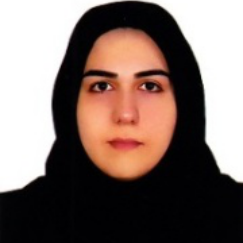International Journal of Information Technology and Computer Science (IJITCS)
IJITCS Vol. 6, No. 8, 8 Jul. 2014
Cover page and Table of Contents: PDF (size: 425KB)
Optimal Design of a RISE Feedback Controller for a 3-DOF Robot Manipulator Using Particle Swarm Optimization
Full Text (PDF, 425KB), PP.25-31
Views: 0 Downloads: 0
Author(s)
Index Terms
Robust integral of the sign of the error (RISE), Asymptotic tracking, 3degrees-of-freedom robot manipulator, particle swarm optimization (PSO)
Abstract
This paper presents an application of recently proposed robust integral of the sign of the error (RISE) feedback control scheme for a three degrees-of-freedom (DOF) robot manipulator tracking problem. This method compensates for nonlinear disturbances and uncertainties in the dynamic model, and results in asymptotic trajectory tracking. To avoid selecting parameters of the RISE controller by time-consuming trial and error method, particle swarm optimization (PSO) algorithm is employed. The objective of the PSO algorithm is to find a set of parameters that minimizes the mean of root squared error as the fitness function. The proposed method attains tracking goal, without any chattering in control input. Indeed, the existence of a unique integral sign term in the RISE controller avoids the occurrence of chattering phenomenon that usually happens in sliding mode controllers. Numerical simulations demonstrate the effectiveness of the proposed control scheme.
Cite This Paper
Marzieh Yazdanzad, Alireza Khosravi, Abolfazl Ranjbar N., Pouria Sarhadi, "Optimal Design of a RISE Feedback Controller for a 3-DOF Robot Manipulator Using Particle Swarm Optimization", International Journal of Information Technology and Computer Science(IJITCS), vol.6, no.8, pp.25-31, 2014. DOI:10.5815/ijitcs.2014.08.04
Reference
[1]R. Colbaugh, K. Glass, “Adaptive tracking control of rigid manipulators using only position measurements,” Journal of Robot and System vol. 14 no. 1, pp. 9–26, 1997.
[2]M. Erlic andW. Lu, “A reduced-order adaptive velocity observer for manipulator control,” IEEE Trans. Robot. Automat., vol. 11, pp. 293–303, Mar. 1995.
[3]F. Piltan, A. Nabaee, M. Ebrahimi, M. Bazregar, “Design Robust Fuzzy Sliding Mode Control Technique for Robot Manipulator Systems with Modeing Uncertainties” I.J. Information Technology and Computer Science, vol. 8, pp. 123–135, 2013.
[4]Y.-W. Liang, S.-D. Xu, D.-C. Liaw, and C.-C. Chen, “A study of T–S model-based SMC scheme with application to robot control,” IEEE Trans. Ind. Electron., vol. 55, no. 11, pp. 3964–3971, Nov. 2008.
[5]Guangjun Liu ,Andrew A, Goldenberg, ”Robust Control of Robot Manipulators Based on Dynamics Decomposition” IEEE Trans. Robotics and automation, vol.13, pp. 783-789, October,1997
[6]R.A. Teixeira, A.D. Braga, and B.R. DeMenezes, “Control of a Robotic Manipulator Using Artificial Neural Networks with On-line Adaptation,” Neural Processing Letters, vol. 12, pp. 19-31, 2000.
[7]L.B. Gutierrez, F.L. Lewis, J.A. Lowe, “Implementation of a neural network tracking controller for a single Texible link: comparison with PD and PID controller,” IEEE Trans. Ind. Electron.vol. 45 307, 1998.
[8]X. Yu, O. Kaynak, “Sliding-Mode Control with Soft Computing: A Survey,” IEEE Trans. On Industrial Electronics, vol. 56, no. 9, September, 2009.
[9].I. Boiko, et al., “Analysis of chattering in systems with second-order sliding modes,” IEEE Transactions on Automatic Control, vol. 52, pp. 2085-2102, 2007.
[10]R. J. Wai and M. C. Lee, “Intelligent optimal control of single-link flexible robot arm,” Industrial Electronics, IEEE Transactions on, vol. 51, pp. 201-220, 2004.
[11]M. Mirzadeh, M. Haghighi, S. Khezri, J. Mahmoodi, H. Karbasi, “Design Adaptive Fuzzy Inference Controller for 2-DOF Robot Manipulator” I.J. Information Technology and Computer Science, vol. 6, pp. 31-38, May,.2014.
[12]Rong-jong Wa and Po-Chen Chen,“Robust Neural-Fuzzy-Network Control for Robot Manipulator Including Actuator Dynamics,” IEEE Trans. Indst. Elect. vol. 53, no. 4, Aug.2006.
[13]H.D. Patino, R. Carelli, B.R. Kuchen, “Neural networks for advanced control of robot manipulators,” IEEE Transactions on Neural Networks vol. 13 no. 2 pp. 343–354, 2002.
[14]F.L. Lewis, A. Yesildirek, K. Liu, “Multilayer neural-net robot controller with guaranteed tracking performance,” IEEE Trans. Neural Networks vol. 7, 388, 1996.
[15]R.J. Wai, “Tracking control based on neural network strategy for robot manipulator,” Neuro computing vol. 51, pp. 425–445, 2003.
[16]B. Xian, D.M. Dawson, M.S. de Queiroz, J. Chen, “A continuous asymptotic tracking control strategy for uncertain multi-input nonlinear systems,” IEEE Transactions on Automatic Control vol. 49, no. 7, pp. 1206–1211, 2004.
[17]C. Makkar, G. Hu, W. G. Sawyer, and W. E. Dixon, “Lyapunov-based tracking control in the presence of uncertain nonlinear parameterizable friction,” IEEE Trans. Automat. Control, vol. 52, no. 10, Oct. 2007.
[18]Z. Cai, M. S. de Queiroz, and D. M. Dawson, “Robust adaptive asymptotic tracking of nonlinear systems with additive disturbance,” IEEE Trans. Automat. Control, vol. 51, no. 3, Mar. 2006.
[19]P.M. Patre, W. MacKunis, W.E. Dixon, “Asymptotic tracking for uncertain dynamic systems via a multilayer NN feed-forward and RISE feedback control structure,” IEEE Transactions on Automatic Control, vol. 53, no. 9, pp. 2180–2185, 2008.
[20]W. MacKunis, P. M. Patre, M. K. Kaiser, and W. E. Dixon, “Asymptotic tracking for aircraft via robust and adaptive dynamic inversion methods,” IEEE Trans. Cont. Syst. Technol., 2010.
[21]P. M. Patre, W. MacKunis, C. Makkar, and W. E. Dixon, “Asymptotic tracking for systems with structured and unstructured uncertainties,” IEEE Trans. Cont. Syst. Technol., vol. 16, no. 2, Mar. 2008.
[22]S. Wang, H. Min, F. Sun, J. Zhang, “Neural Network Control of Spacecraft Formation Using RISE Feedback,” Advances in Neural Network Research and Applications, vol. 67, pp. 521– 528, 2010.
[23]J. Kennedy and R. C. Eberhart, “A new optimizer using particle swarm theory,” in Proc. 1995 6th Int. Symp. Micro Machine Human Sci., Nagoya, Japan, pp. 39-43,.
[24]M. I. Solihin, et al., “Comparison of LQR and PSO-based state feedback controller for tracking control of a flexible link manipulator,” in 2nd IEEE International Conference on Information Management and Engineering (ICIME), 2010, pp. 354-358.
[25]A.R. Shirazi, M. M. S. Fakhrabadi, A. Ghanbari, “Optimal Design of a 6-DOF Parallel Manipulator Using Particle Swarm Optimization,” Advanced Robotics, vol. 26, no. 13, 2012.
[26]E. Kim,”Output feedback tracking control of robot manipulators with model uncertainty via adaptive fuzzy logic,” IEEE Trans. Fuzzy Systems vol. 12 no. 3, pp. 368–378, 2004.
[27]M. Clerc and J. Kennedy, “The Particle Swarm—Explosion, Stability, and Convergence in a Multidimensional Complex Space”, IEEE Transactions on Eevolutionary Computation, vol. 6, no. 1, February, 2002.



